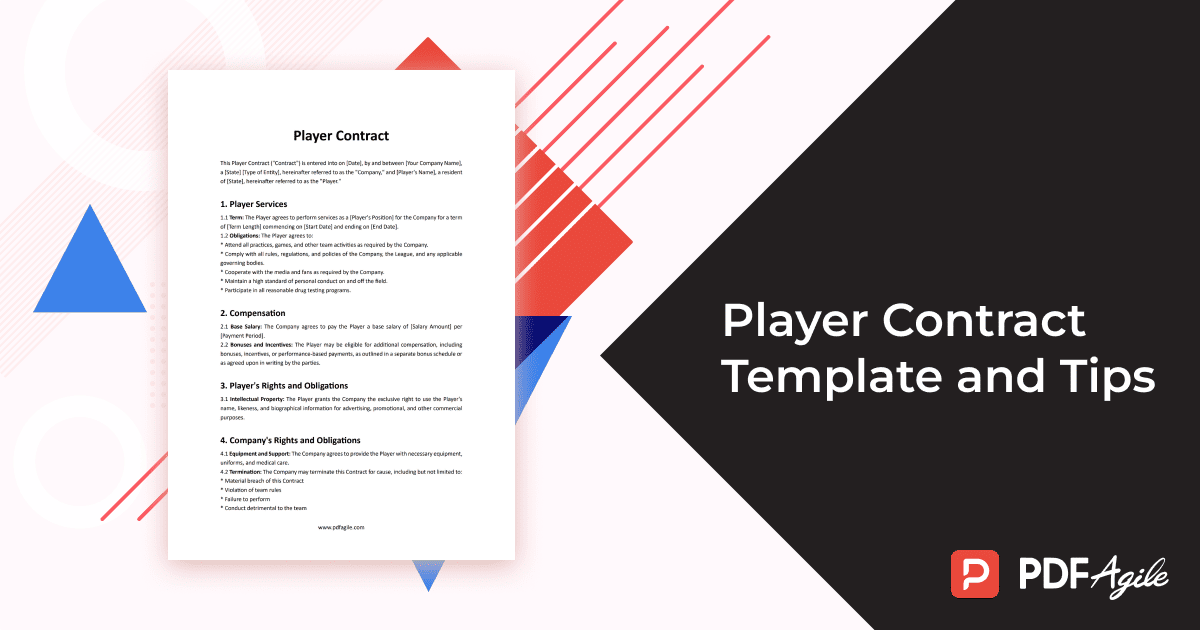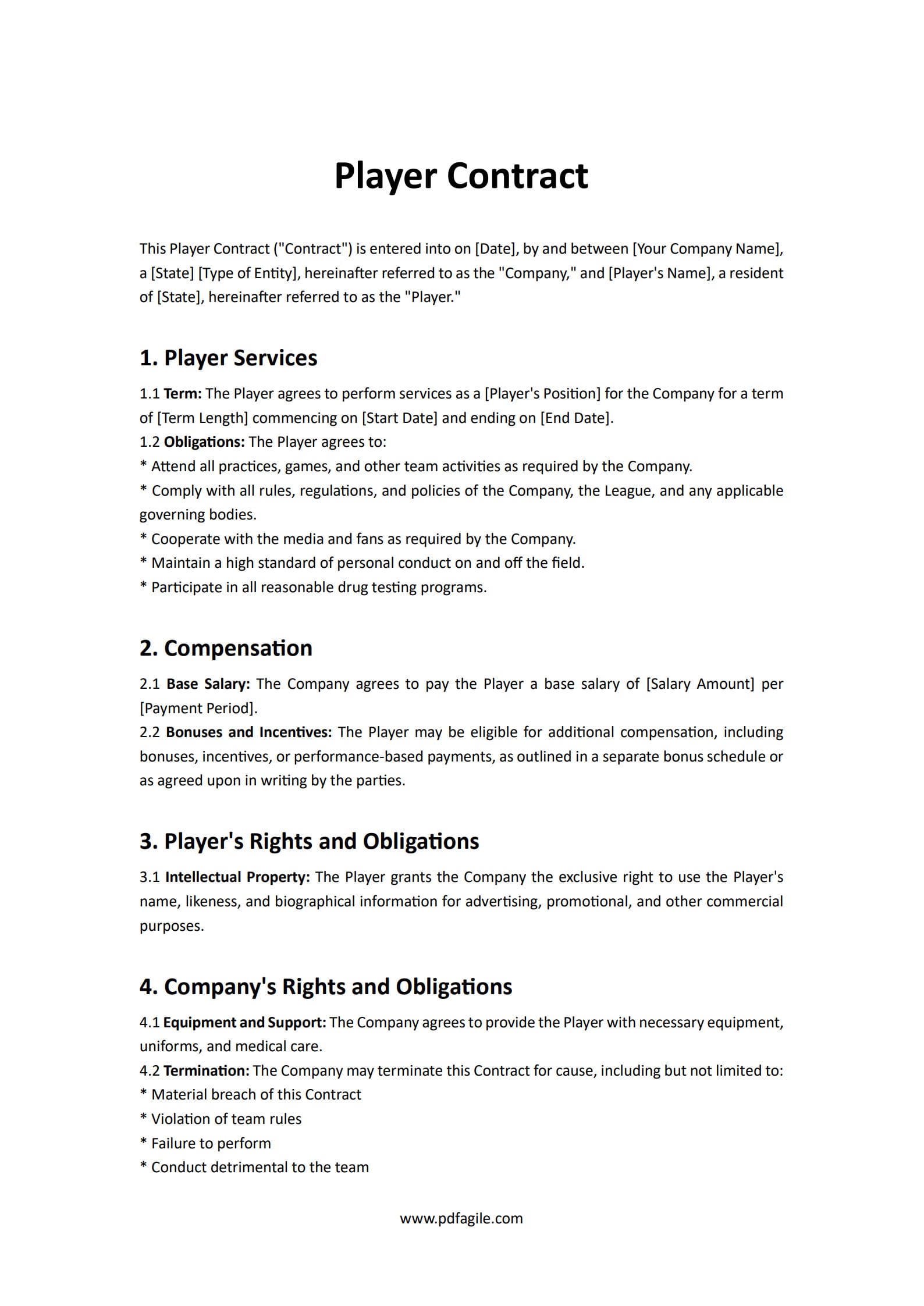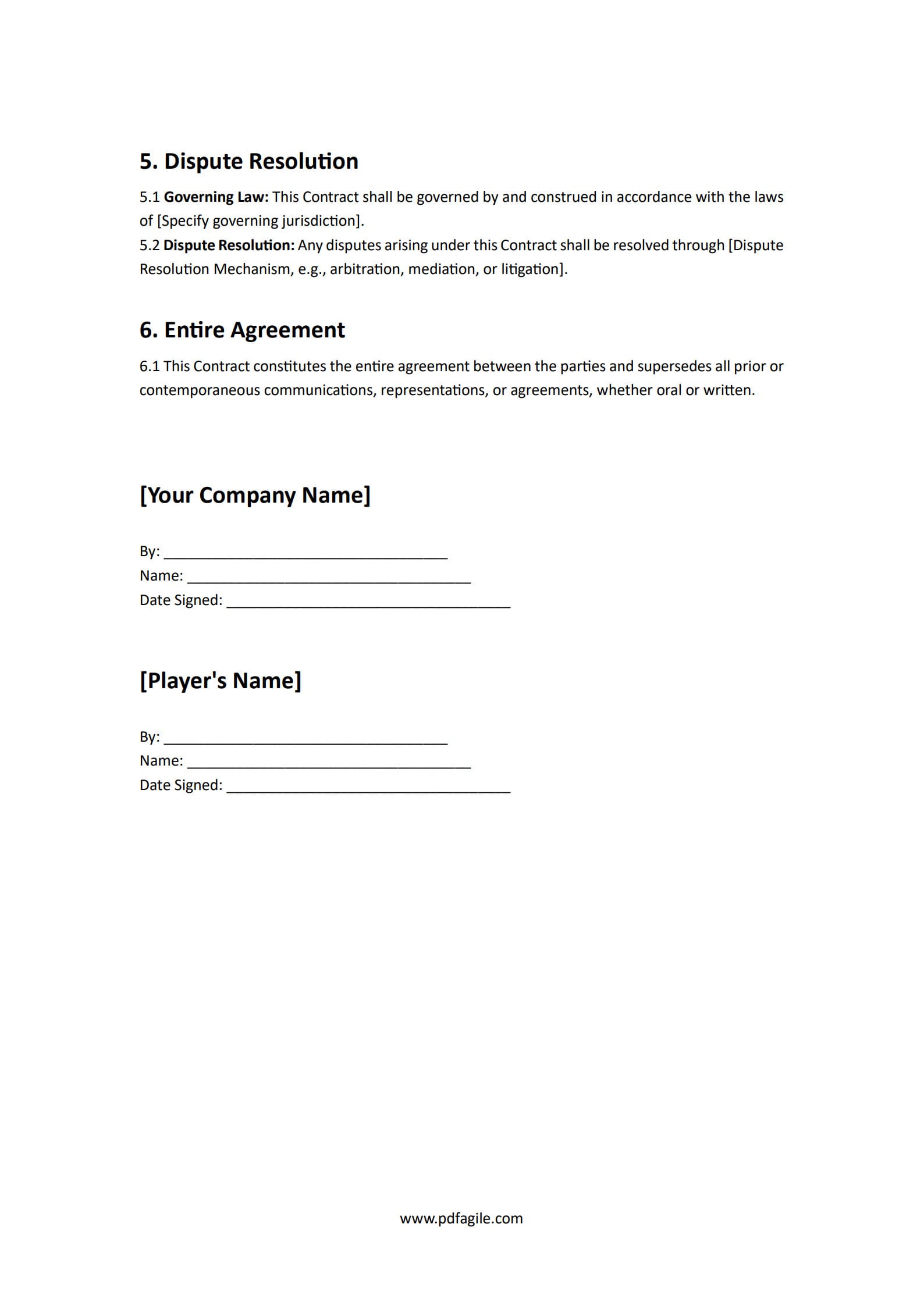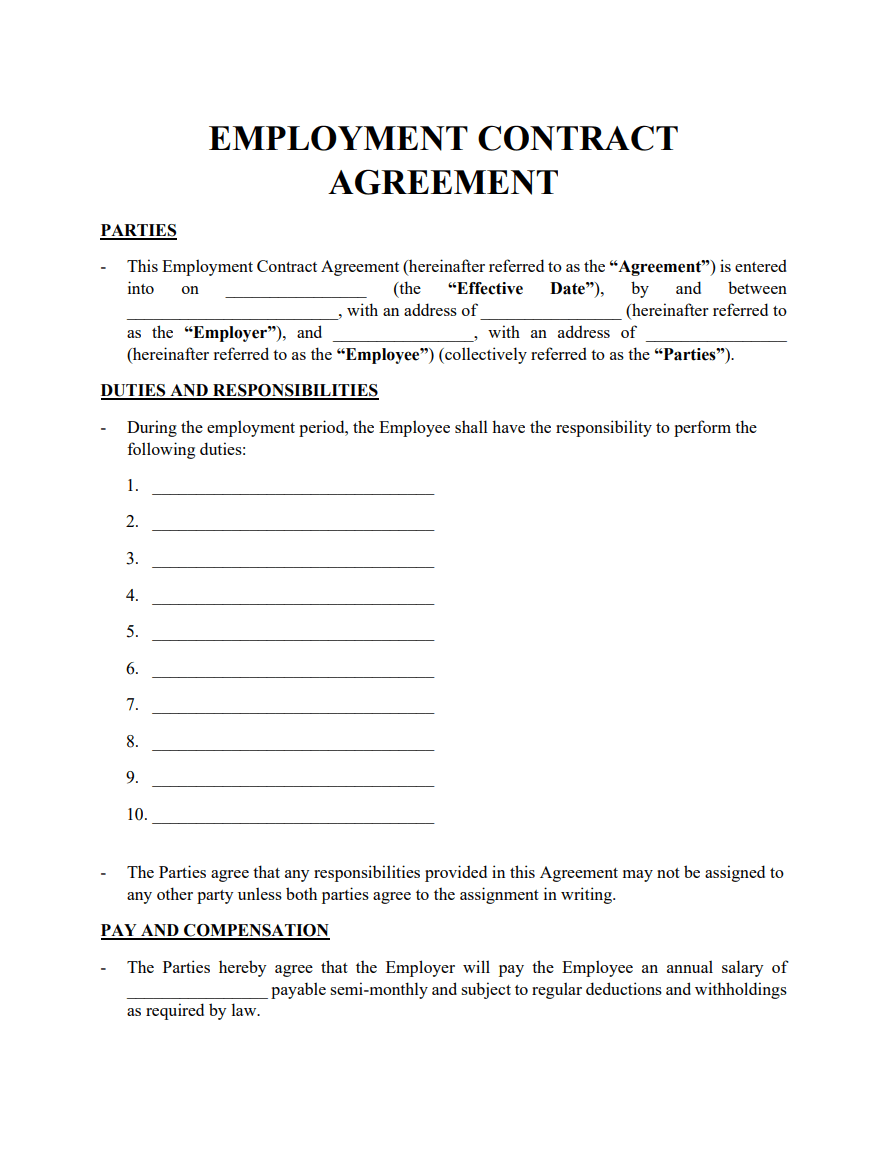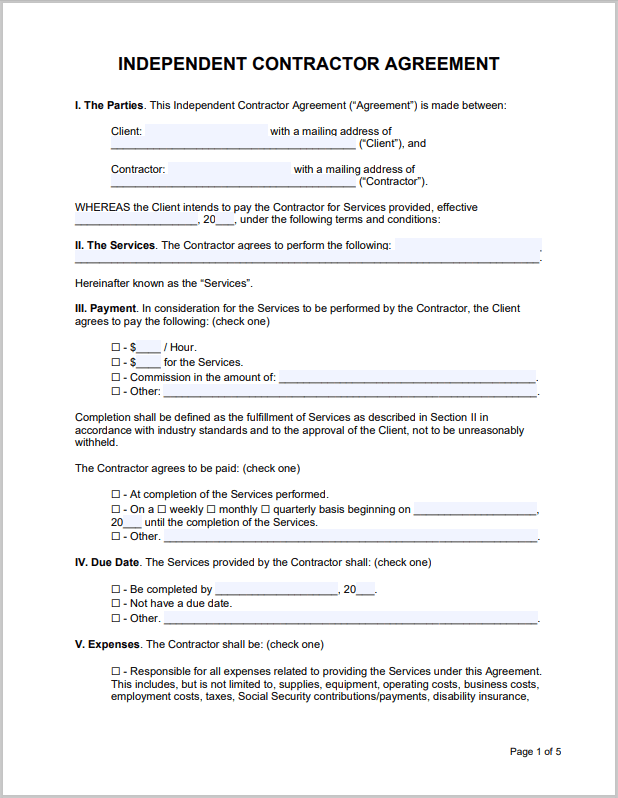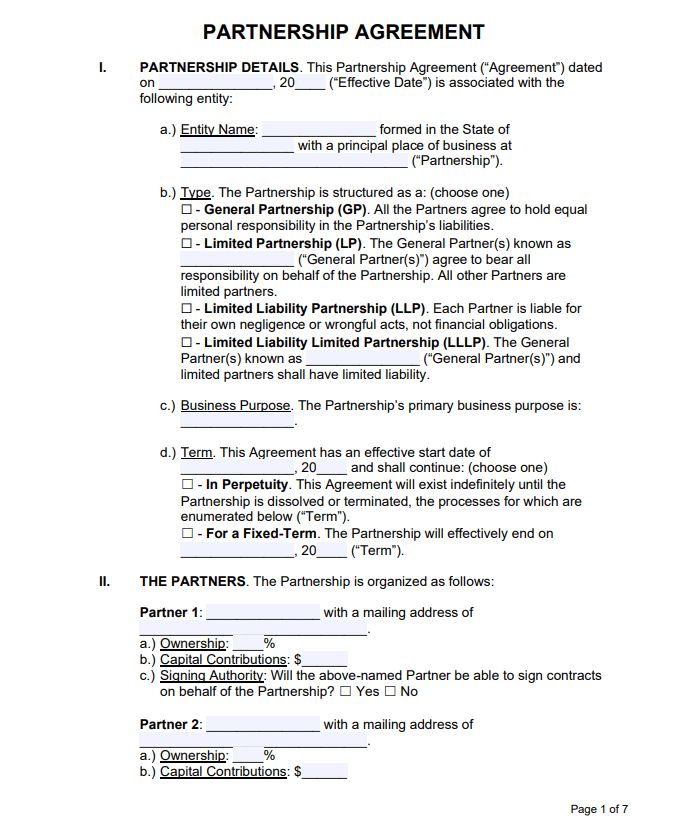Thinking about signing a professional sports contract? This is a crucial decision that can impact your career and future. Before committing your signature, it's essential to understand the key components of a player contract and the considerations you need to make.
This guide will equip you with the knowledge to navigate the world of player contracts. We'll provide a breakdown of a sample contract template, offer valuable tips, and answer frequently asked questions.
Demystifying the Player Contract Template
The player contract template serves as a legal document outlining the rights and obligations of both you (the Player) and your future team (the Company). Here's a breakdown of the key sections:
- Introductory Paragraph: This section establishes the date, parties involved (your name and the company name), and the agreement's title (Player Contract).
- Player Services (Section 1): This section defines your role as a player, the contract term length (start and end dates), and your obligations. These typically include:
- Attending practices, games, and team activities.
- Complying with team, league, and governing body rules.
- Cooperating with media and fans.
- Maintaining a high standard of personal conduct.
- Participating in drug testing programs.
- Compensation (Section 2): This section details your financial compensation package. It usually includes:
- Base Salary: The fixed amount of money you receive per payment period (e.g., weekly, monthly).
- Bonuses and Incentives: This might include performance-based bonuses or incentives outlined in a separate document.
- Player's Rights and Obligations (Section 3): This section specifies intellectual property rights. You might grant the company permission to use your name, likeness, and biographical information for promotional purposes.
- Company's Rights and Obligations (Section 4): This section outlines the company's responsibilities towards you, including:
- Providing necessary equipment, uniforms, and medical care.
- Grounds for contract termination (e.g., misconduct, poor performance).
- Dispute Resolution (Section 5): This section specifies how disagreements arising from the contract will be addressed. It might involve arbitration, mediation, or litigation, and the governing law applicable to the contract.
- Entire Agreement (Section 6): This section clarifies that the written contract constitutes the complete agreement, superseding any prior discussions or agreements.
- Signatures: This section includes designated spaces for both parties (you and the company representative) to sign and date the contract.
Tips and Considerations When Making a Player Contract
While the provided template is a solid foundation, it's crucial to approach contract negotiation with a keen eye for detail and a strategic mindset. Here are some essential tips to consider:
Consult with a Sports Agent
A seasoned sports agent can be your advocate, navigating the complex world of contract negotiations. They possess the expertise to negotiate favorable terms, protect your interests, and ensure you're getting a fair deal.
Review Every Clause with a Fine-Toothed Comb
Don't rush through the contract. Take your time to understand every clause, no matter how small it may seem. Pay close attention to the contract's duration, salary structure, performance bonuses, termination clauses, intellectual property rights, insurance coverage, and dispute resolution mechanisms.
Negotiate Strategically
Don't be afraid to negotiate for the best possible deal. This includes your base salary, performance bonuses, contract length, and intellectual property rights. A well-negotiated contract can significantly impact your earning potential and career trajectory.
Seek Legal Counsel
Before signing any contract, it's wise to consult with a sports attorney. They can provide invaluable legal advice, review the contract for potential pitfalls, and ensure your rights are protected.
Frequently Asked Questions
Do I need a lawyer to review the contract?
While not strictly necessary, it's highly recommended. A lawyer specializing in sports law can provide in-depth legal advice specific to your contract.
What happens if I breach the contract?
Breaching the contract could result in penalties, fines, or even contract termination.
What happens if I get injured?
Depending on the contract and the severity of the injury, the company might be obligated to pay your salary or provide medical benefits during recovery.
Free Download: Your Customizable Player Contract Template
Need a quick and easy way to create a professional player contract? Download our free, customizable template by clicking the Use Template button on this page. Simply fill in the blanks with your specific information and print it out.
